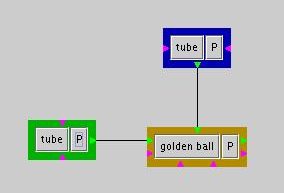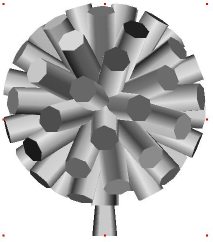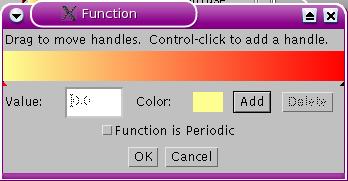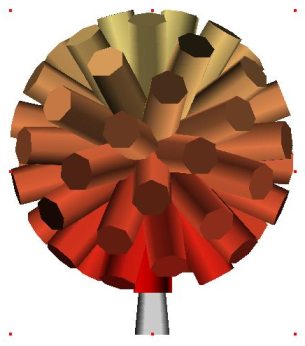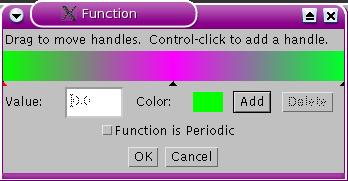
Usually, objects are
assigned standard AoI textures (uniform, procedural, imaged mapped,
etc...). However, just as geometric characteristics of objects vary
along the decoration process of a coil or golden ball module, it is
sometimes wished that the texture vary as well. For example, a flower
may have darker petals at its center than on the periphery.
Using two special value parameters in a procedural texture (be it 2D or
3D), it is possible to vary the texture along the decoration process.
Two parameters are available for texture parameterising :
- Y, which
is the "height" parameter. It ranges from 0 to 1, 0 being the bottom in
the case of coil module decoration or the top in the case of golden
ball module decoration.
- R, which
is the radial angle and ranges from 0 to 1 (360°).
To use
one of these parameters in a procedural texture, insert a parameter
value and name it "YTAPD" or "RTAPD". It is mandatory that the
parameter names are properly spelled, using upper case characters.
Another requirement is that these texture parameters must be applied to
whole objects.
For example, let us define the following TaPD procedure, which consists
of a simple golben ball decoration :
Figure 1 : A simple Golden ball procedure
Let us now suppose that we want the color of the cyliders to be yellow
at the top and red at the bottom. This effect can be reached through
defining the following procedural 2D texture :
Figure 2 : A procedural texture that makes
use of Y parameter
and
applying this texture to the the tube object, using object as texture parameter :
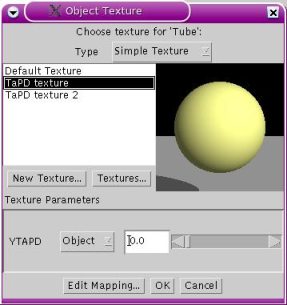
Figure 3 : Applying the texture to the tube
object. Note the texture parameters setting.
which
yields the following result :
Figure 4 : Result !
If we wanted the tube color to vary with the radial angle, we could
have used the RTAPD parameter, as shown below. Note that since the 0
and 1 value of the radial angle overlap (0 and 360°), the
customised colormap must be such that the two ends correspond to the
same colour (which is not the
same as activating the periodic
option !).
Figure 5 : A procedural texture that makes use of R
parameter...
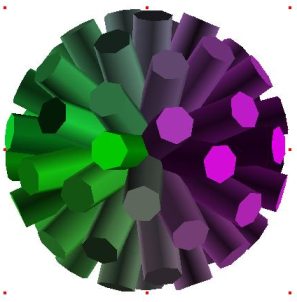
Figure 6 : ...and result.
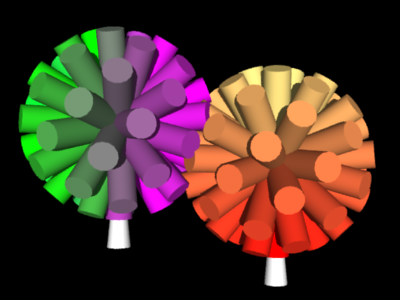
This example can be dowloaded here.


